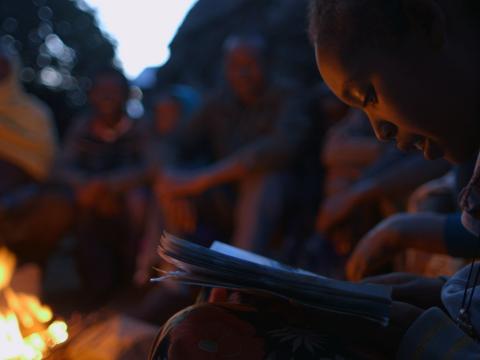The power of story telling for teaching and learning

I woke up today reminiscing about how the world has come to appreciate days like World Teachers’ Day and International Literacy Day - eulogizing the need for children to unravel the mystery behind alphabetic letters. One quote in particular set my mind off on a tangent: Philip Pullman said that, "...after nourishment, shelter, and companionship, stories are the thing we need most in the world." I believe anyone reading this knows this too well.
In Ghana, and in most African communities prior to the advent of electricity, children were told stories by the fire side under the moonlight. I personally enjoyed the story time in the village in the eastern region of Ghana where I grew up. I learned many values from these stories, most of which I still treasure.
In Acts 28:26-40, Philip accosted a traveling senior officer of the Ethiopia King’s palace who was reading without comprehending the text he had in hand. The assistance Philip provided this individual eventually led him to God. Reading with comprehension is at the heart of education, but in today’s schools, too many children struggle to learn to read. As many teachers and parents will attest, reading failure has exacted tremendous long-term consequences for children’s developing self-confidence and motivation to learn, as well as for their later school and life performance.
(Photo credit: Andrew Ofosu-Dankyi / World Vision)
While there are no easy answers for optimising literacy achievement, an extensive knowledge base now exists that provide evidence of the skills children must learn in order to read well. These skills provide the basis for sound curriculum decisions and instructional approaches that can help prevent the predictable consequences of early reading challenges.
Stories are powerful ways of reaching people with deep philosophical ideas. In traditional settings stories mixed with rich proverbs help convey ideas and decisions in ways that allow the listener time for reflection. Traditional societies use stories to prepare children for adult life. This is how age old traditions have been transmitted over time. Thus, most Ghanaian children are born with an innate architecture already designed to listen to and tell stories. Teachers must adopt story telling as a bridge to literacy.
Related links:
- Equity in education is our collective responsibility - and its possible
- International Literacy Day turns 50!
- Literacy Boost
Andrew Ofosu-Dankyi is World Vision’s Regional Literacy Capacity Building Coordinator for West Africa and Country Education Specialist for Ghana. He holds a B.Ed in Education, PGD and a MA in Organisation Development. He has worked extensively as classroom teacher for early grades and as a literacy trainer. His specialties include design and teacher training, Early Grade Reading Assessment, and material and content development.
